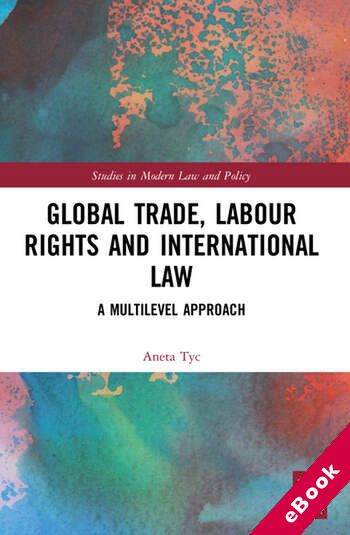
The device(s) you use to access the eBook content must be authorized with an Adobe ID before you download the product otherwise it will fail to register correctly.
For further information see https://www.wildy.com/ebook-formats
Once the order is confirmed an automated e-mail will be sent to you to allow you to download the eBook.
All eBooks are supplied firm sale and cannot be returned. If you believe there is a fault with your eBook then contact us on ebooks@wildy.com and we will help in resolving the issue. This does not affect your statutory rights.
This book provides a set of proposals for how best to guarantee effective enforcement of labour rights worldwide.
The linkage between labour standards and global trade has been recurrent for some 200 years. At a time when the world is struggling to find a way out of crisis and is striving for economic growth, more than ever there is a need for up-to-date research on how to protect and promote labour rights in the global economy. This book explores the history of the field and also provides an overview of emerging trends and opportunities. It discusses the most recent problems including: the effectiveness and the role of the International Labour Organization (ILO) in the second century of its existence, the World Trade Organization (WTO) and its potential relevance in the protection of labour rights, the effectiveness of the US and the EU Generalised System of Preferences, the impact of corporate social responsibility (CSR) instruments on labour rights, and labour provisions in the international trade agreements concluded by the US and the EU. The book argues, inter alia, that trade agreements seem to be a useful tool to help pave the way out of the crisis and that the United States–Mexico–Canada Agreement (USMCA) can be perceived as a model agreement and a symbol of a shift in perspective from long global supply chains to a focus on regional ones, local production, jobs and a rise in wages.
The book will be essential reading for academics and students in the fields of human rights law, international labour law, industrial relations law, international sustainable development law, international economic law and international trade law. It will also be of interest to practitioners, non-government organisations (NGOs) and policy makers.